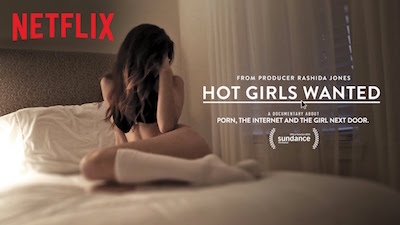
I had never truly considered pornography as an issue–or indeed even classified it as a potential source of contention in my mind–until I took a class in Gender and Sexuality that exposed me to many of the arguments that surround it. Until then for me it had always been a fact of human sexuality; people watched it, teenage boys were generally obsessed with it, and the majority of girls I knew tended to avoid it. I suppose my thoughts on pornography followed a fairly generalising attitude, but I had never really questioned it further. However the more I learnt about it the more I began to realise the extent of its social and cultural impact, and to consider what we take for granted as ‘normal’ sexual encounters and expectations- and how much pornography may inform this.
There are of course many girls who watch and enjoy pornography, and indeed female-produced and directed porn is becoming increasingly popular. This can be seen for example in the Adult Video News (or AVN) awards -known as the ‘Oscars of porn’- which have seen an increase in female nominations for best director (while the real Oscar nominations see little to no female directors). It is clear therefore that girls need not be excluded from pornography (both in making and enjoying it) and indeed it is important to consider its potential benefits alongside the proclaimed detrimental effects in order to best decide whether it has the potential for female empowerment and pleasure, or is yet another patriarchal tool with the effect of further objectifying and endangering women. In considering this it is perhaps best to focus primarily on heterosexual pornography, as it raises more unease about the question of submission/dominance than homosexual porn.
But why should we care about porn? Why is it a topic worthy of discussion and exploration? I know that there are many who would be happier to simply leave it in the back of their minds as something they know about, but don‚Äôt feel the need to delve into further. However it is a massive part of our society’s vision and development of sexuality and it‚Äôs also interesting to consider its position in the debate around gender power relations. It can be an incredibly divisive topic and many of the arguments that oppose it centre around its perceived capability to influence the minds of users to sexual deviance and non-egalitarian views; potentially reducing the female body to a commodity. On the other hand, there are many who take a more positive attitude towards porn and argue that it opens up a discourse around sexuality, releases inhibitions and creates opportunities for sexual liberation and pleasure. It‚Äôs difficult to know what side of the fence you sit on, as you can find examples and articles to back up either side of the debate. After watching a Netflix documentary called Hot Girls Wanted, I was convinced it was a terrible industry, but the next day would read an interview with a feminist porn director and find my mind changed. What I think is important is to have an awareness of both sides of the argument, to recognise the potential impact of pornography and to open up the discussion around it, removing its somewhat taboo status and thus placing much of the power back in girls‚Äô hands to remove any feelings of intimidation or exclusion that it could cause. Only in opening up the issue can we begin to diminish its potential harm.
-Scarlett Evans
Junior Girl
Girl Museum Inc.
